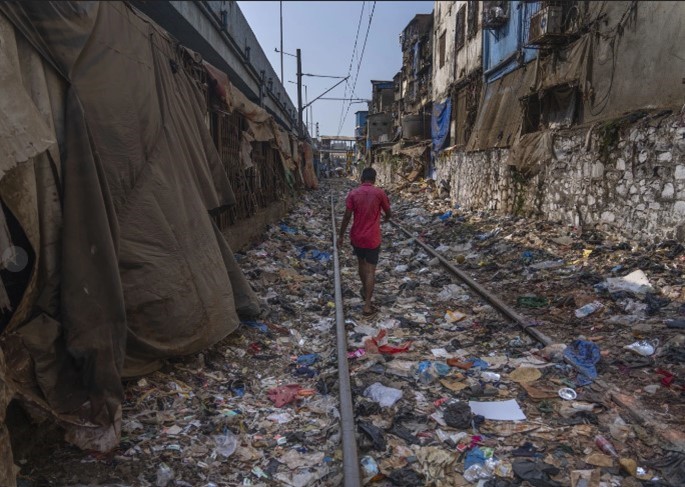
World Produces 57 Million Tons of Plastic Pollution Annually, with Majority from Global South
The world generates 57 million tons of plastic pollution each year, with over two-thirds originating from the Global South, according to a study published in Nature by researchers at the University of Leeds. This massive amount of waste contaminates the environment, from the depths of the oceans to the highest mountains, and even the inside of human bodies.
The study analyzed plastic waste in over 50,000 cities and towns globally, focusing on pollution that enters the open environment, excluding waste properly landfilled or incinerated. It found that for 15% of the world's population, mainly in Southeast Asia and Sub-Saharan Africa, governments fail to manage waste effectively, exacerbating plastic pollution. Lagos, Nigeria, ranks as the most plastic-polluting city, followed by New Delhi, India, and Luanda, Angola.
India is the largest contributor, producing 10.2 million tons of plastic waste annually, more than double the next highest polluters, Nigeria and Indonesia. Other significant contributors include China, Pakistan, and Brazil. Together, these countries account for over half of the world's plastic pollution. In contrast, the United States ranks 90th, producing 52,500 tons, and the UK ranks 135th with 5,100 tons.
The study highlighted that much of the pollution comes from improperly burned or dumped plastic, leading to microplastics that pose health risks to humans and wildlife. Microplastics have been found in remote locations such as Mount Everest and the Mariana Trench, as well as in drinking water and human tissues.
While most of the plastic waste originates in the Global South, experts stress that the root cause lies in the global production of plastics. Critics argue that focusing solely on waste management overlooks the broader problem of plastic production and its contribution to climate change through greenhouse gas emissions.
In response to the plastic crisis, most nations agreed in 2022 to negotiate the first legally binding treaty on plastic pollution, with final negotiations set for November in South Korea. Despite these efforts, the United Nations projects that global plastic production could triple by 2050, warning that "our planet is choking in plastic."